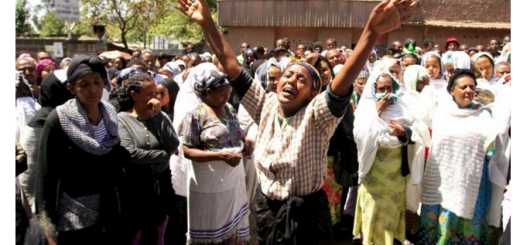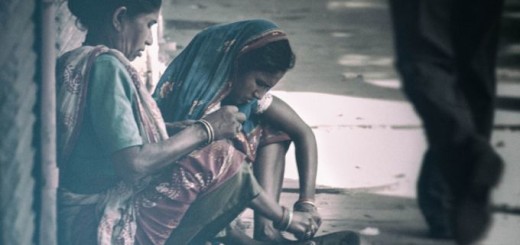How the ‘shadow council’ is trying to influence the Synod on the Family
Cardinal Reinhard Marx of Munich and Freising (L) speaks at a press conference held by German bishops at the Teutonic College, Oct. 5, 2015. Credit: Bohumil Petrik/CNA.
(Note: The bark of Peter with Francis at the helm at present is going through a fierce storm raising the waves of criticism for and against sky high to drown it — some of his fierce critics calling him a heretic who needs to impeached and deposed while the ultra progressives are calling upon him to change all hard and fast traditional rules and beliefs to make his church a free for all modern society to take in people with no scruples. In the light of these two extreme groups , the shadow council is to be seen as doing a balancing act to make the ship go through safe and sound but renewed in spirit and vision accommodating all reforms practical, possible and digestible to the majority on both sides. james kottoor, editor)
By Andrea Gagliarducci, Catholic News Agency(CNA)
The secretive May meeting was organized by the German, French, and Swiss bishops' conferences; and while nearly all of the small groups strongly criticized the synod's instrumentum laboris, or working document, the German report is different, as it praises the working document for both its method and contents.Vatican City, Oct 12, 2015 / 03:32 pm (CNA/EWTN News).- When the first week's reports of the 13 small groups at the Synod on the Family were released on Friday, the influence of those who participated in May's “Shadow Council” could be discerned in the report of the German speaking group.
The three French speaking groups have a more nuanced approach to the instrumentum laboris, given the varied compositions of each groups, though at least one of the French groups showed a positive attitude to it.
The German group's positive assessment of the instrumentum laboris come from the attitude already experienced at the 'shadow council'.
The German group praised the instrumentum laboris' methodology, saying, “the overall presentation of the text found unanimous agreement. We're also very much in agreement with the order of the document, including the structuring of the three chapters. It takes the order of papers from earliest sentence and conferences which lead from seeing to judging and finally into action.”
The group emphasized that “as bishops, we take a stand on marriage and family,” while adding that “we also want to listen to the circumstances and challenges of
their life, and to accompany and strengthen them with the loving regard of the Gospel.”
This sentence recalls one of the proposals of the 'shadow council.” The participants in the May meeting advocated approval of contraception, homosexual acts, and admission to Communion for the divorced-and-remarried, after a consideration of the circumstances, and proposed a “narrative theology” based on personal experience – which is linked to rejecting the notion that any act can be intrinsically evil.
How did the experience of the 'shadow council' weigh in the working of the German group?
Among the shadow council participants, two were in the German speaking small group at the synod: Cardinal Reinhard Marx of Munich and Freising, who gave the final speech at the May 25 shadow council, and Archbishop Heiner Koch of Berlin, who in a February interview with a German newspaper called for changes in the pastoral care of homosexuals, saying that to “portray homosexuality as a sin is hurtful.”
Archbishop Koch is the group's relator, working alongside its moderator, Cardinal Christoph Schoenborn of Vienna.
In a lengthy interview granted to the Jesuit-run magazine La Civiltà Cattolica in September, Cardinal Schoenborn stressed that since the social and cultural context has changed, the Church must find new ways of approach. He also proposed “personal penitential paths” for the divorced-and-remarried.
Cardinal Walter Kasper, president emeritus of the Pontifical Council for Promoting Christian Unity, is also part of the German group: his proposal for the admission of (some of) the divorced-and-remarried to Communion is well known.
The group also includes two 'conservative' cardinals of the Roman Curia: Cardinal Kurt Koch, president of the Pontifical Council for Promoting Christian Unity and Cardinal Gerhard Mueller, prefect of the Congregation for the Doctrine of the Faith.
A strong defender of Church doctrine on faith and morals, Cardinal Mueller seems to be virtually isolated in the German small group, as the positions of the “prelates of the shadow council” seem to be prominent.
The composition of the French groups are more balanced, which is mirrored in their final reports.
Out of three French language reports, only that of 'French C' – whose moderator is Bishop Maurice Piat of Mauritius, and whose relator is Archbishop Paul-André Durocher of Gatineau – completely backs the methodology of the instrumentum laboris.
The French C group underscored that the method of see, judge and act “is well adapted to our subject: it permits us to organize abundant material in a logical and productive way.”
The group also underscored that “the implicit anthropology of our modern culture is far from the Christian vision” of the family. The group also asked for a completely new introduction in the final report, which would “make explicit the link between the Synod and the New Evangelization, Evangelii Gaudium, and the Synod on the Family.”
The group also noted its concern over the emergence of gender ideology. The members considered that “many gender theories have been developed in sociology and philosophy, trying to analyze some human and social phenomena in order to enrich our understanding of the world.”
However, the group stressed, when these theories “try to impose a point of view which denies the relation between the sexual identity and our actual sex, it dissolves the family, the parenthood, the human love.”
Meanwhile, the French A group (moderated by Cardinal Gerald Lacroix of Quebec and related by Archbishop Laurent Ulrich of Lille) includes two 'shadow council' participants: Bishop Jean-Luc Brunin of Le Havre and Bishop Jean-Marie Lovey of Sion.
This group asked the text to adopt “the point of view of family life, not limited to that of couples and marriage”, and lamented that “some (of the prelates) are worried that not all the amendments proposed, drafted and adopted after an intense discussion will not be taken in consideration.”
The group wants to underscore that “these amendments have been elaborated with much attention and with discussion that required a lot of energy and abnegation, in order to take into account the opinions of everyone.”
















